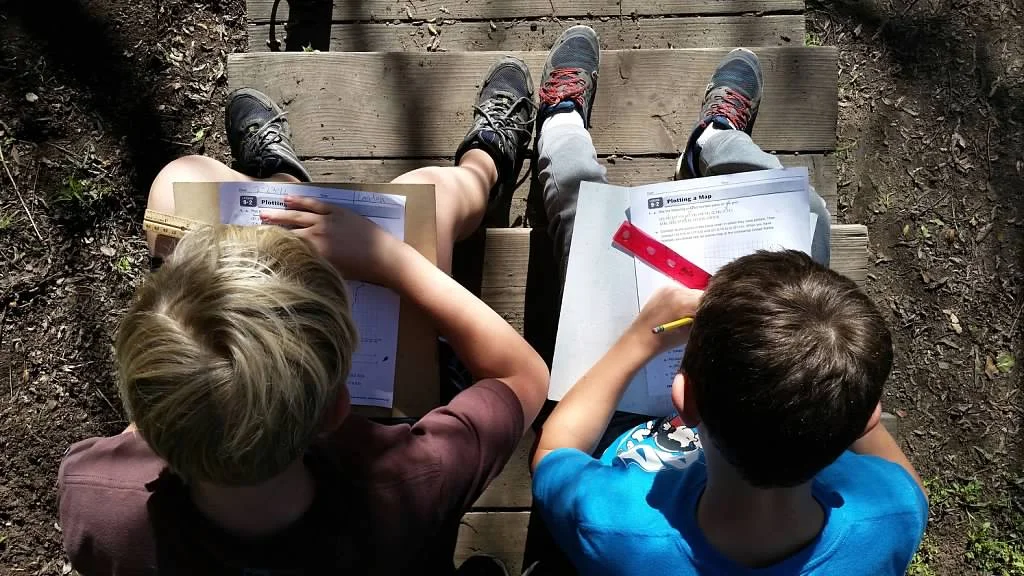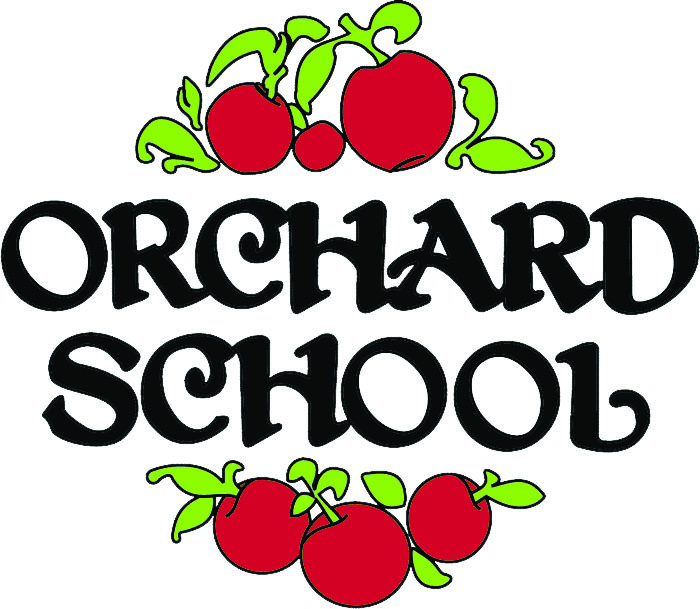


The Orchard Difference
The Orchard Difference
Specialty Teachers
In the first through sixth grades, our small academic classes are taught by specialty teachers in math, humanities, and science. The primary goal is to create meaningful classroom experiences that keep children engaged and active. In addition, students attend a daily arts class in music, art, drama, or circus arts.
This structure means single-subject teachers can provide a depth of knowledge in their field of expertise. It also gives students the opportunity to form relationships with a family of teachers who can follow a student’s academic progress through the grades. Kindergartners spend most of their day with one dedicated teacher but also have time with the arts teachers.
Student-CENTERED
Our progressive approach prioritizes class discussion, open dialogue and hands-on experiences to ensure children are active, enthusiastic participants in their own education. We honor children’s curiosities, recognize they have different interests and needs, and encourage their ability to problem solve in a group setting.
Students are given the chance to design learning projects based on their passions and to lead class activities, both of which increase the depths of understanding. Competition among peers is deemphasized in favor of cooperative work and personal achievement. To this end, grades and testing are not part of the curriculum. Homework is limited to allow time for other activities outside of school and to help promote a well-rounded child.
nature-based
Our campus is an integral part of the student experience at Orchard School. Teachers use every opportunity to bring the learning outside and allow children to interact with nature. In science, students might spend weeks tracking the bird activity around bird feeders they built in a carpentry elective.
In math, they might develop word problems based on counting legs, heads and tails of our farm animals. In language arts, they might gather for centering yoga activities under the trees, or to write poems about key features on campus. We know that children are happier when they develop a concrete relationship with the Earth and when they get to learn while moving their bodies.

Core Classes
Core Classes
Humanities
The humanities program uses the English Language Arts Common Core curriculum as a springboard for a deep treatment of language and literacy. Students explore thematic stories, analyze classic literature and nonfiction texts, deconstruct poems, learn songs and movements, and play with oral storytelling traditions. An important part of this work is social studies, where the children explore community and local and world history. Themes are brought to life with hands, hearts and minds by going on field trips, developing historical re-enactments and creating interesting projects. The program’s overarching goals are to enrich the imagination, to encourage a love of reading and writing, and to nurture a child’s natural curiosity while building a strong foundation of academic skills. Students often work in small, cooperative groups to help support a collaborative learning environment and to target students’ individual needs.
Science
Our campus is the perfect backdrop for outdoor exploration and for making observations about the natural world. Students explore a variety of concepts through hands-on investigations, with interactive activities like stories, games, art, songs and drama helping make science come alive. They collaborate in small groups and practice the inquiry process, forming questions that guide their investigations while they gather data and reflect on their findings. Engineering and design challenges are incorporated into the curriculum, along with seasonally-themed activities. Lab teams use a variety of science tools, from beakers to microscopes, to build on their knowledge and skills year to year, as new concepts are introduced. In the spring, students have the opportunity to participate in Orchard’s Science Fair and Invention Convention.
math
Students explore all the strands of math (geometry, logic, patterns and functions, probability and statistics, measurement, algebra, and number) through games, manipulatives, investigations, problem-solving, and teaching sheets. We also focus on mental math and allow for both partner and individual work. Different learning styles are addressed in the lesson presentations but also in providing a variety of materials that speak to children in different ways. We try to follow the seasons so, for example, in the fall children “investigate” apples and in the process, measure, count, estimate, graph and so forth. This makes math a lot of fun while keeping students invested in applying mathematical principles in a real life context. Literacy is incorporated whenever possible through story telling, games and cooking projects, helping bring math to life rather than isolating it from other learning.
kindergarten
In kindergarten, we sing, dance, garden, cook, paint, and sew, as well as learn about letters and numbers. We take each child as an individual, respecting his or her learning pace, and removing pressure from the mix. The overarching goals are to help children develop emotionally and socially, to foster their naturally inquisitive minds through storytelling, play, and asking and answering questions, to protect childhood, and to work with our hands. Surrounding children with beauty and with nurturing relationships is a priority, as is focusing on empathy and building a loving relationship to school -- a perfect foundation for future learning.
the arts
MUSIC
Unfortunately, we suspended our music program during the pandemic and have not yet fully rekindled it. For now, students get to explore music in their core classes through singing, creative movement, and some work with recorders and drums. Specialty music teachers periodically offer electives or after school classes. The kindergarteners and first graders have a dedicated music class once a week with an emphasis on the Orff Approach.
Art
While teaching the fundamentals of art, the program also focuses on the idea that art is everywhere, that anyone can be an artist, and that we are all works of art. Just as there is an emphasis on line, color, value, shape, dimension and texture, an exuberant love for the arts is encouraged. Students are exposed to contemporary working artists, as well as to artists throughout history. They are given the chance to use recycled materials, to sew and to weave, and of course to draw and paint in various mediums. Collaborative art projects are part of the curriculum and in general, creativity, expressiveness, and individuality are valued above output.
CIRCUS ARTS/DRAMA
Our circus arts and drama program teaches students mastery of a set of unique skills they are unlikely to be exposed to at any other school. Starting in kindergarten, kids begin the process of learning to unicycle, stilt walk, juggle, act, and perform various other feats requiring deep concentration. In so doing, they build strength, agility, dramatic presence, confidence, self-esteem, and focus, all of which serve them well in their academic work and in their lives. In addition to class time spent on such pursuits, the kids also participate in a full-scale theater production, a Halloween performance, and CircOrchard, an all-student children’s circus tour open to the public. They are offered opportunities for involvement in several community events including the downtown Santa Cruz Holiday Parade and half-time shows at the Santa Cruz Warriors’ stadium.
other classes
Leadership
The leadership program is an important part of Orchard School as it gives teachers and students a chance to focus on issues that are important in creating community, developing personal ideals, and learning about one’s place in the world. Leadership activities include community service (work on campus like cleaning, recycling, setting up for school events), participation in student council, leading our all-school morning circle, participating in school-wide decision making, and activities, discussions and games related to the school’s mindfulness curriculum. Sometimes a class will take on a community project, such as collecting donations and raising money for the animal shelter, performing at a senior home, or creating a cookbook.
Gardening
Our young gardeners spend one class a week in the garden. Here they have the opportunity to plant, tend and harvest fresh organic produce and flowers, everything from strawberries and lettuces, to sunflowers and pumpkins. They design garden beds in cooperative groups, determining what to plant where and learning through experimentation what works best in a given space. They also work in community plots. They learn about composting, soil composition, sustainability and the environment. To this end, leftovers from lunches and special events go into the compost bins, along with manure from the farm animals. Students are invested in making sure all of our events are zero waste affairs, and families are asked to bring their own place settings from home so that we don’t generate garbage.
Electives
On Fridays, students have the chance to select elective classes and participate in specialty workshops. These classes span eight week sessions and are led by Orchard teachers, parents or other artisans or specialists from the community. Course offerings run the gamut from surfing to pottery, archery to knitting, French to basketball, and bread-making to nature hikes . Classes are sometimes organized by grade and sometimes by interest, giving students the chance to work with older and younger kids, as well as with their peers.










